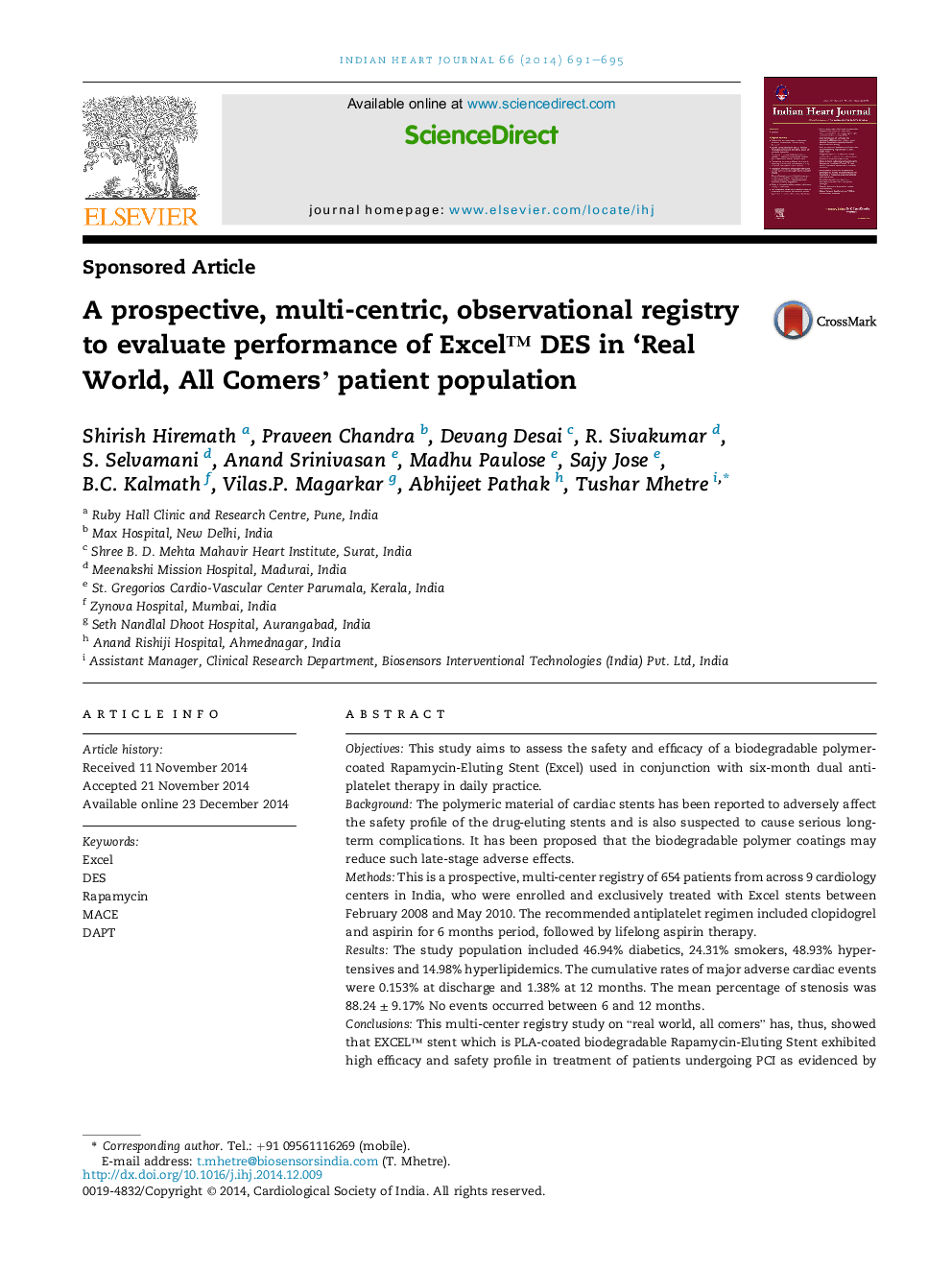| Article ID | Journal | Published Year | Pages | File Type |
|---|---|---|---|---|
| 5962039 | Indian Heart Journal | 2014 | 5 Pages |
ObjectivesThis study aims to assess the safety and efficacy of a biodegradable polymer-coated Rapamycin-Eluting Stent (Excel) used in conjunction with six-month dual antiplatelet therapy in daily practice.BackgroundThe polymeric material of cardiac stents has been reported to adversely affect the safety profile of the drug-eluting stents and is also suspected to cause serious long-term complications. It has been proposed that the biodegradable polymer coatings may reduce such late-stage adverse effects.MethodsThis is a prospective, multi-center registry of 654 patients from across 9 cardiology centers in India, who were enrolled and exclusively treated with Excel stents between February 2008 and May 2010. The recommended antiplatelet regimen included clopidogrel and aspirin for 6 months period, followed by lifelong aspirin therapy.ResultsThe study population included 46.94% diabetics, 24.31% smokers, 48.93% hypertensives and 14.98% hyperlipidemics. The cumulative rates of major adverse cardiac events were 0.153% at discharge and 1.38% at 12 months. The mean percentage of stenosis was 88.24 ± 9.17% No events occurred between 6 and 12 months.ConclusionsThis multi-center registry study on “real world, all comers” has, thus, showed that EXCEL⢠stent which is PLA-coated biodegradable Rapamycin-Eluting Stent exhibited high efficacy and safety profile in treatment of patients undergoing PCI as evidenced by significantly lower rates of MACE and no case of stent thrombosis. There was no event even after DAPT was discontinued after 6 months.
